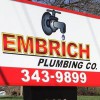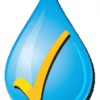There's no doubt, when carpet gets wet, you need to act fast. If water from the carpet and carpet pad is not dried within 24 to 48 hours after becoming wet, you now run the risk of mold growth. According to the EPA, you should dry wet carpet immediately to prevent mold growth. With our emergency water extraction service, we are available 24/7 to ensure your carpet is completely dry. If water damage or flooding was due to a plumbing leak, such as from a burst pipe or washing machine hose, we typically dry both the carpet and padding in place.
At All Clean Restoration, we get this question a lot "how to dry out walls after a leak"? Here is our process and a few pictures to help you get a better idea of how professional restoration companies handle this. Our trained water restoration technicians use moisture detectors to determine whether wall cavities have been affected by a flood or leaking. This includes determining if the insulation and drywall within the wall cavity is wet. Baseboard moldings are then removed, and holes are bored into each wall bay (the void between the studs) below the baseboard trim, this reduces repairs to your trim.
Wood floors are especially vulnerable to water damage. Wood can swell which can cause buckling. The space between the wood floor and the sub-floor can retain moisture and be a breeding ground for black mold and mildew. Waiting too long with water damage repairs and the wood will begin to rot. With our state of the art water detection system, we can find the source of the water then remove it thus protecting and preserving your wood floor investment. Using different methods of detection, we will find the source of the problem and determine the affected areas.
Fire damage can be devastating, not only by the fire itself, but the smoke and often the water used to extinguish the fire. Recovery and restoration is a complex task and how you get rid of fire and smoke in a house or commercial building, should be performed by a professional fire and smoke damage restoration company like All Clean Restoration. Whether you have a kitchen fire, an electrical fire, or a fire due to a cigarette not fully put out, we take care of it all. From providing an initial assessment to extracting the water from the fire department to the removal of smoke and soot from all surfaces and areas of your home or business.
Water damage comes in all shapes and forms and in any season. Common types of interior water damage are basement flooding, pipe breaks, frozen pipe bursts, washing machine overflow, dishwasher overflow, and sewage backup. Seasonal water damage includes storm damage, heavy rains, flooded lakes and streams, tornados, and severe thunderstorms. All causing emergency water damages to your home or business. But one thing remains constant with water damage, once detected, it is critical that restoration clean-up process begins immediately.
Black mold removal, mold remediation, mold abatement, and mold mitigation are all terms that essentially mean the same thing - find the moisture source and fix what is causing black mold to grow and then remediating the mold. Mold and mildew, both terms commonly used to describe fungi that grows on various surfaces in your bathroom, kitchen, attic, in vents, and other areas of your home or business. And because these microorganism love to feed and grow wherever moisture is, it's up to you to call in a mold remediation company to rid your home of those unsightly fuzzy spots.
Similar Businesses







